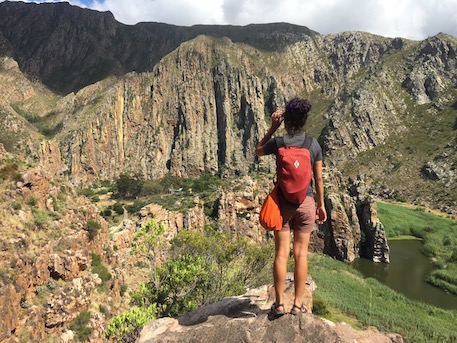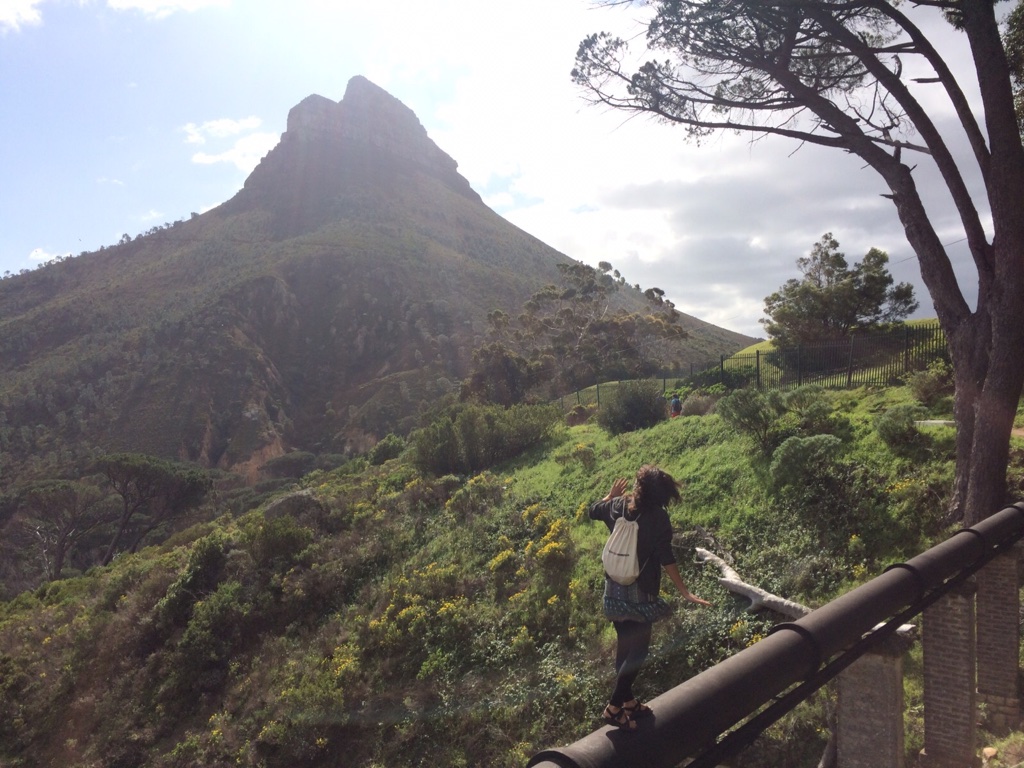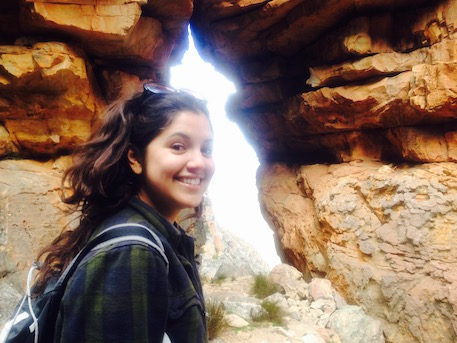How eIDs make proving your identity easier, faster, and almost free
A case study on how Swedish BankID and other electronic identities (eIDs) make customer identification, authentication and verification easier, faster, cheaper.

Wise is the smarter way to send money internationally. We're making it cheaper and easier for you to move money between countries, because we believe the world is better when people, money and ideas can travel more freely.
Two years after graduating from college, while at a friend’s party one weekend, I looked around the room and realized something disappointing.
All of us had graduated college, and the majority of people at the party worked in three main areas: law, tech, and “consulting”. All of us were on track to have financially stable, nine-to-five careers. Though this should have been a moment to celebrate, instead I felt panicked. Before I turned 24, my life – like the lives of many at that party – had followed a path of convention. It's a path of achievement for a daughter of immigrants: I studied hard throughout high school to gain acceptance into a great university, and I worked hard throughout college to obtain a prestigious and financially stable job upon graduating.
My parents had come to this country from Mexico and Ecuador seeking better opportunities for themselves. Though they never explicitly mentioned the American Dream throughout my childhood, I felt an implied duty to honor their sacrifices by pursuing the traditional American definition of success.
But during those first two-years out of college, I began questioning whether my somewhat traditional path was what I actually wanted.
I started noticing the significant limitations the American Dream often required: stressful, exhausting, and often uninspiring work; an over-reliance on “weekend warrior-ing” to make-up for a lack of fulfillment throughout the week; a hectic routine that generally felt unhealthy, and an often isolated lifestyle that left me feeling lonely. At the same time, I also doubted my career decision to be a teacher, and doubted I could actually handle what the profession required.
Abandoning the traditional path.

After making all the “right” choices by 24, I still did not necessarily feel like I was on the right path.
Ultimately, I couldn’t rid myself of the feeling that I needed more to sustain me. So by March of that year, I wrote my letter of resignation at my job.
In May, I ended the lease on my apartment, sold and/or gave away my cheap, garage-sale furniture, and bought a one-way ticket to Cartagena, Columbia with a friend of mine from childhood.
The night before leaving, I packed about fifteen pounds of clothes, toiletries and books into a backpack. It would be all I would carry for the next twelve months.
My trip would take me through South America, South Asia, Western Europe, and eventually the western United States.
During my trip, I fulfilled my long-time dreams of hiking the Inca Trail, visiting India, and seeing Rome. I taught myself how to ski, I completed my first ten-day hiking trip through the mountains, and I discovered yoga and meditation — all hobbies I’d eventually start pursuing passionately after coming home.
Redefining the American Dream.

On my last day of that year of travel, I remember walking through a London garden with the most ecstatic high of my life.
For the first time, I felt like I had accomplished something that was truly my own, something that aligned with my individual idea of happiness and success.
After that trip, my definition of the “American Dream” changed entirely: I realized it wasn’t about achieving a specific goal, but instead about achieving the freedom to choose what you want your life to look like. For me, that meant focusing less on prestige, outside recognition, and resume-building, and more on overall spiritual well-being, creativity, adventure, and appreciating experiences for their own sake.
Since returning, I’ve felt relieved to discover that many young people from my generation have begun challenging and reinventing the American Dream in similar ways.
Prominent writer Courtney E. Martin has recently argued in a TED talk called “The New Better Off” that: “The biggest danger is not failing to achieve the American Dream. The biggest danger is achieving a dream that you don't actually believe in.”
Her new definition of the American Dream? “A life where what you do every single day, the people you give your best love and ingenuity and energy to, aligns as closely as possible with what you believe.”
Redefining success

Of course, it takes a high level of financial privilege to have the luxury of doing this.
But those of us lucky enough to have that privilege have started finally taking advantage of it: A 2012 New Impact survey found that 58 percent of young workers claimed they would take a 15-percent pay cut to work for an organization that shared their same values.
Older generations have begun rethinking their previous notions of success: a study by the Harvard Business Review reported that as people age, factors like “family happiness,” “relationships,” “balancing life and work,” and “community service” became more important than job titles and salaries. The report quoted a man in his 50s who said he used to define success as “becoming a highly paid CEO.” His definition now: “striking a balance between work and family and giving back to society.”
Curiously, even after returning to the States from my trip, I only found that new definition of success and my version of the American Dream by moving abroad. In 2014 I received a freelance writing opportunity in South Africa and left the US again. Life there came with its own unique set of struggles, but it gave me the lifestyle I had wanted but couldn’t easily find in the States: fulfilling work that both gave back to society and balanced well with my relationships.
Since then I’ve lived in and out of the States, following work (I’m currently living in Havana, Cuba). Similarly, many young Americans have begun rethinking whether their “American Dream” can best be found somewhere else: one recent survey found that over half of Americans between the ages of 18-34 would consider living abroad, many also citing reasons like “work-life balance” as their reason for leaving.
The long term?

Of course, a part of me sometimes wonders whether this way of life will last long-term.
Just as there are limitations to the traditional American Dream, there are to the “traveler’s dream” as well. I don’t see my family or close friends from home nearly enough. I miss holidays and weddings. I have never stayed in a place long enough to find and nourish a real sense of community, or to deeply commit to a certain hobby.
Freelancing as a “digital nomad” means I never get the camaraderie, support, or safety that working a nine-to-five at an office often provides. I make my own hours, and often take holidays alone.
That all being said, I have yet to feel the need to go back to what I had before. I realize now that I honor my parents' sacrifices most when I allow myself to be the happiest and healthiest I can be. These last four years of traveling and working have given me that gift.
I’ve been given beautiful glimpses into many countries, cities, homes, contexts, lives. I’ve had the privilege of being able to impulsively change plans and up-and-go whenever I wanted. I’ve shared so many lovely moments with strangers, and enjoyed the magic of transient connection. I’ve had a great share of adventure, exploration, and freedom. I’m grateful to have the chance to live that different kind of dream.
Wise is the cheaper, easier way to send money between countries.
Try it by signing up here. Or try our Borderless account, which makes managing money in different currencies cheaper and easier than ever.
*Please see terms of use and product availability for your region or visit Wise fees and pricing for the most up to date pricing and fee information.
This publication is provided for general information purposes and does not constitute legal, tax or other professional advice from Wise Payments Limited or its subsidiaries and its affiliates, and it is not intended as a substitute for obtaining advice from a financial advisor or any other professional.
We make no representations, warranties or guarantees, whether expressed or implied, that the content in the publication is accurate, complete or up to date.

A case study on how Swedish BankID and other electronic identities (eIDs) make customer identification, authentication and verification easier, faster, cheaper.

Moritz wowed at his Pro Day with his sizzling speed on top of his power and sizeCheck out his key measurables and career history: